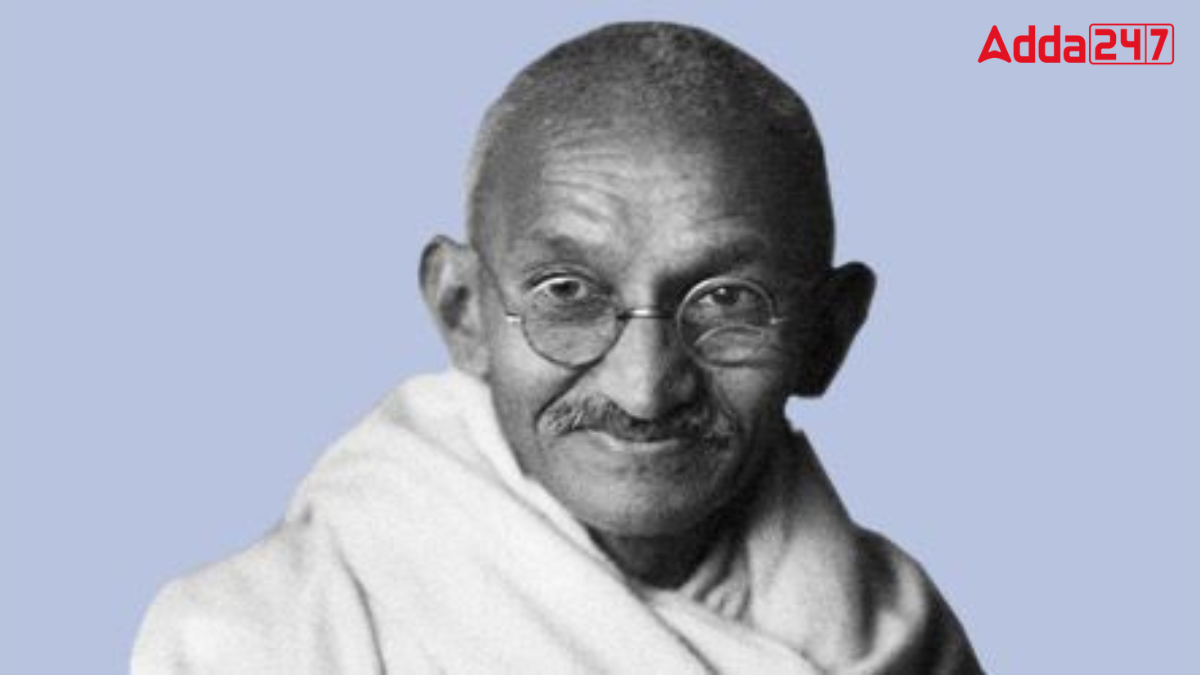Mahatma Gandhi, known as the Father of the Nation in India, was a leader who believed in simple living and high thinking. His teachings continue to inspire people around the world, especially students. Gandhi’s principles of truth, non-violence, and self-discipline are valuable lessons for students in building character and leading a meaningful life.
About Mahatma Gandhi in Brief
Mohandas Karamchand Gandhi, known as Mahatma Gandhi, was born on 2 October 1869 in coastal Gujarat, India. He came from a Hindu family and later trained in law at the Inner Temple in London. After being called to the bar in June 1891 at the age of 22, Gandhi returned to India. However, his initial years in India were challenging as he struggled to establish a successful law practice.
In 1893, Gandhi moved to South Africa to represent an Indian merchant in a lawsuit. He spent 21 years there, where he raised a family and first employed nonviolent resistance to advocate for civil rights. His experiences in South Africa shaped his future methods of protest. In 1915, he returned to India, where he organized farmers, peasants, and urban laborers against discrimination and heavy taxation.
Gandhi assumed leadership of the Indian National Congress in 1921 and initiated nationwide campaigns to combat poverty, promote women’s rights, and end untouchability. He adopted the dhoti, woven with hand-spun yarn, to identify with India’s rural poor. Gandhi lived in a self-sufficient community and practiced simple living. His prominent actions included the Dandi Salt March in 1930 and the call for British withdrawal in 1942.
Gandhi’s vision for an independent India centered on religious pluralism, which faced challenges during the rise of Muslim nationalism in the 1940s. Following India’s independence in August 1947, the country was partitioned into Hindu-majority India and Muslim-majority Pakistan, leading to widespread violence. Gandhi abstained from independence celebrations to address the religious strife and engaged in hunger strikes to promote peace.
On 30 January 1948, Gandhi was assassinated by Nathuram Godse, a militant Hindu nationalist, during an interfaith prayer meeting in Delhi. Despite his tragic death, Gandhi’s teachings of non-violence and truth continue to inspire movements for civil rights worldwide. His birthday, 2 October, is celebrated in India as Gandhi Jayanti and globally as the International Day of Nonviolence, reflecting his enduring legacy as the Father of the Nation.
Inspirational Quotes by Mahatma Gandhi for Students
- “The future depends on what we do in the present.”
- “It’s easy to stand in the crowd but it takes courage to stand alone.”
- “Our greatest ability as humans is not to change the world, but to change ourselves.”
- “Service without humility is selfishness and egotism.”
- “It does not require money to live neat, clean, and dignified.”
- To lose patience is to lose the battle.”
- Mahatma Gandhi Quotes
- “Speak only if it improves upon the silence.”
- “Carefully watch your thoughts, for they become your words. Manage and watch your words, for they will become your actions. Consider and judge your actions, for they have become your habits. Acknowledge and watch your habits, for they shall become your values. Understand and embrace your values, for they become your destiny.”
- “Strength does not come from winning. When you go through hardships and decide not to surrender, that is strength.”
- “Seek not greater wealth, but simpler pleasure; not higher fortune, but deeper felicity.”
- “Be the change you are trying to create.”
- “Our greatest ability as humans is not to change the world, but to change ourselves.”
- “There are two days in the year that we can not do anything, yesterday and tomorrow.”
- “Happiness is when what you think, what you say, and what you do are in harmony.”
- “There is nothing that wastes the body like worry, and one who has any faith in God should be ashamed to worry about anything whatsoever.”
- Mahatma Gandhi Inspirational Quotes
- “Those who know how to think need no teachers.”
- “A coward is incapable of exhibiting love; it is the prerogative of the brave.”
- “The best way to find yourself is to lose yourself in the service of others.”
- Honest disagreement is often a good sign of progress.”
- “Each night, when I go to sleep, I die. And the next morning, when I wake up, I am reborn.”
- “Look at the sparrows; they do not know what they will do in the next moment. Let us literally live from moment to moment.”
- “Man should forget his anger before he goes to sleep.”
- “Man often becomes what he believes himself to be. If I keep on saying to myself that I cannot do a certain thing, it is possible that I may end up really becoming incapable of doing it. On the contrary, if I have the belief that I can do it, I shall surely acquire the capacity to do it even if I may not have it at the beginning.”
- “A ‘No’ uttered from deepest conviction is better and greater than a ‘Yes’ merely uttered to please, or what is worse, to avoid trouble.”




 Which Country is the Largest Kidney Bean...
Which Country is the Largest Kidney Bean...
 What is the Capital of Saudi Arabia? Kno...
What is the Capital of Saudi Arabia? Kno...
 Who Was Hiranyakashipu, the Powerful Asu...
Who Was Hiranyakashipu, the Powerful Asu...








